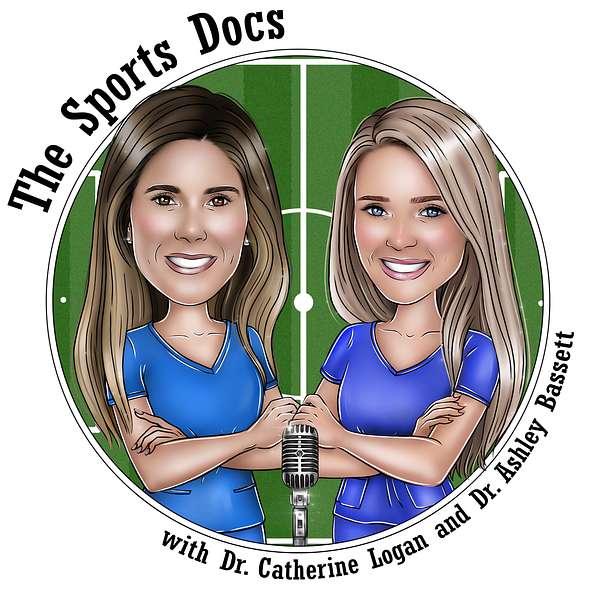
The Sports Docs Podcast
Sports medicine is a constantly evolving field, with hundreds of new articles published each month on the topic. This ever-growing wealth of information can make it challenging to stay updated on the newest approaches and techniques, and to know which data should actually change your practice. Join orthopedic surgeons, Dr. Catherine Logan and Dr. Ashley Bassett, as they chat about the most recent developments in sports medicine and dissect through all the noise.
On each episode of The Sports Docs podcast, the hosts will tackle a specific injury – from ACL tears to shoulder instability – and review the top research from various high-impact journals that month, including The American Journal of Sports Medicine, Arthroscopy: The Journal of Arthroscopic and Related Surgery, Sports Health, Journal of Shoulder and Elbow Surgeons, and more. The Sports Docs will also be joined by experts in the field of sports medicine – orthopedic surgeons, nonoperative sports medicine specialists, athletes, physical therapists, athletic trainers and others – to provide a fresh and well-rounded perspective based on their unique experiences.
The Sports Docs – Dr. Logan & Dr. Bassett – are friends & former co-residents from the Harvard Combined Orthopaedic Residency Program, who went onto esteemed sports medicine fellowships at The Steadman Clinic and The Rothman Institute, respectively. Dr. Logan practices in Denver, CO, and serves as Team Physician for Men's USA Lacrosse & as a Team Physician for U.S. Ski & Snowboard. Dr. Bassett is the director of the Women’s Sports Medicine Center at the Orthopedic Institute of New Jersey and practices across northern NJ, primarily in Morris and Sussex Counties.
Together, they will bring monthly conversations on how to care for athletes of all ages and levels of play, with a healthy mix of cutting-edge science and real-world application.
The Sports Docs Podcast
34. Candace Townley Cox, DPT: ACL Recovery Tips and Tricks - Part I
On today’s episode we’re focusing on rehabilitation of ACL surgery with Candace Townley Cox, a Doctor of Physical Therapy and body movement expert at Evolution Physical Therapy. Today’s discussion will center around tips and tricks to optimize outcomes and some common pitfalls that may hold patients back from a full recovery.
We have some great articles for you that contribute well to our conversation on the surgical treatment of knee cartilage disease. As always, links to all of the papers that we discuss on this show can be found on our podcast website.
The first article is a level 3 case-control study published in the October 2020 issue of OJSM, titled Anterior Knee Pain After Anterior Cruciate Ligament Reconstruction. Gustavo Constantino de Campos and his team in Sao Paulo, Brazil retrospectively reviewed the records of 438 patients who underwent ACL reconstruction. Anterior knee pain was reported in 6.2% of cases. Patients who underwent ACL reconstruction with a patellar tendon autograft were 3.4 times more likely to experience anterior knee pain. Also, patients who experienced an extension deficit in the post-op period were also more likely to experience anterior knee pain, with an odds-ratio of 5.3. The authors fund that anterior knee pain was not correlated with patient sex, age or surgical technique.
We are joined today by Dr. Candace Townley Cox. Candace is a Colorado native who received her Bachelor’s degree in Athletic Training at Nebraska Wesleyan University. Following undergrad Candace returned to Colorado as a Graduate Assistant Athletic Trainer at Regis University in Denver. There, she earned her Master’s degree in Sports Performance while working specifically with the Women’s Volleyball and Softball teams. Candace continued her education at Regis University earning her Doctorate of Physical Therapy. Since graduating Candace has spent countless hours in Sport Science Labs assessing movement quality, efficiency, as well as bone and muscle performance. As a movement expert, she is able to address the body’s impairments both from a table assessment and from functional movement assessments.